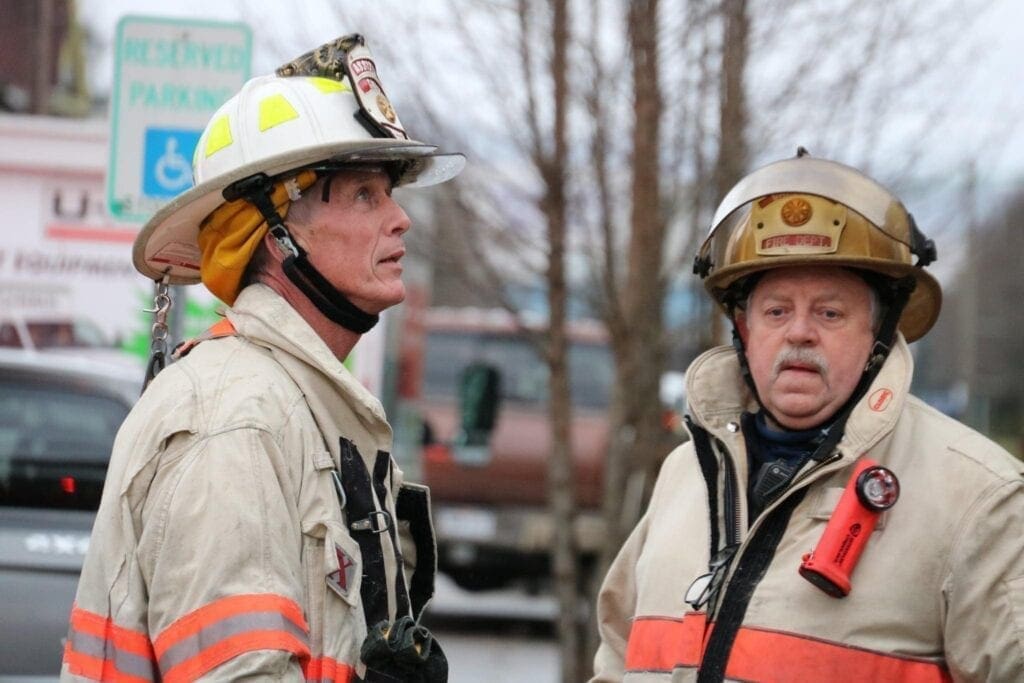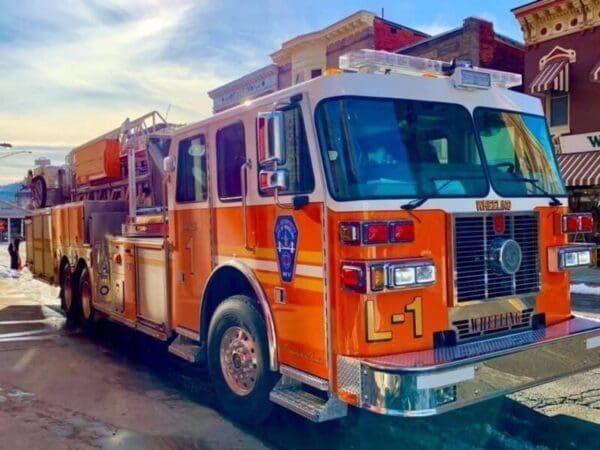Although all of the city’s firefighters have risked exposure to Covid-19, and several have been forced into quarantine over the last 10 months, Wheeling’s fire chief believes the pandemic is what led to the first decrease in the total of emergency calls in 15 years.
It surprised Chief Larry Helms, too.
That’s because he and members of his staff believed the more time people spent at home would result in additional homebound blazes and falling accidents.
“Overall, I believe the decrease was caused by Covid-19. We didn’t have any events like all the festivals and things like that, and normally we have calls that are connected to those events,” Helms explained. “We usually have bee stings, injuries, and some heat exhaustion during the Italian Festival and some of the others, but that certainly wasn’t the case last summer.
“EMS calls are 65 percent of what we do, and the overall decrease for the department was 4 percent,” he continued. “When the pandemic started and the lockdown was put into place, we talked a couple of times about how we expected an increase in fires because people would be home more, and they would be cooking more. What we found, though, is that people were more vigilant than ever. We actually saw a decrease in fire calls, and that really surprised me.”

Oven Mittens and Kitchen Towels
Crews with the Wheeling Fire Department responded to a structure fire in South Wheeling last week, an incident that resulted in one of the two residents being transported to Wheeling Hospital. The house was deemed a total loss.
The fire department reported the following statistics during the first week of January.
Total Calls for Service: 6,899, including:
Overpressure/Explosion/Overheat (no fire): 51; Rescue/EMS/Medical: 4,434; Hazardous Condition/No Fire: 144; Service Calls: 893; Good Intent Calls: 608; False Alarm/False Calls: 657; Severe Weather/Natural Disaster: 7; Special Incident Type: 5.
And 100 fire calls.
“We really thought there would be more stove fires or fires related to leaving the iron on, but those things weren’t happening so that was a relief,” Helms said. “Overall, I think the biggest reason for the decrease in calls is because of the pandemic and all of the restrictions that have gone with it.
“If Covid never happened, we probably would have had more calls than ever, but it’s still been a tough year for everyone, and nothing has been normal since last March. But I really think a lot of it had to do with people being legitimately afraid of getting exposed and legitimately afraid to go to the hospital because of the virus,” he said. “We have had some exposure issues within the fire department, and we have had firefighters who have had to quarantine and who have tested positive. But we’ve worked through it all, and we continue to serve the residents of the city.”

Phase 1b
Inoculations for Helms’ firefighters have continued, as well, because more department members have changed their minds and registered to receive their first-responder doses. In the beginning, when members of the police and fire departments were second only to frontline medical workers, some remained hesitant, according to the fire chief.
“A little more than 60 percent of the department has been vaccinated to this point, but I expected it to be about 70 percent when it started,” Helms said. “But I think the fact that people weren’t experiencing the side effects everyone feared has allowed some of the others to go through with it, too. Everyone has their reasons, and you have to respect that. It’s their choice.”
Helms, who is set for retirement in July, is 57 years old and was eager to get protected by the two-dose procedure.
“I am sure some of our younger members believe if they do get Covid that they will come through it just fine,” he said. “That’s not always the case, but most of the time it has been. I know when I got my second vaccination, I felt fatigued and had some cold symptoms for about 24 hours, but then felt completely normal the very next day.”


